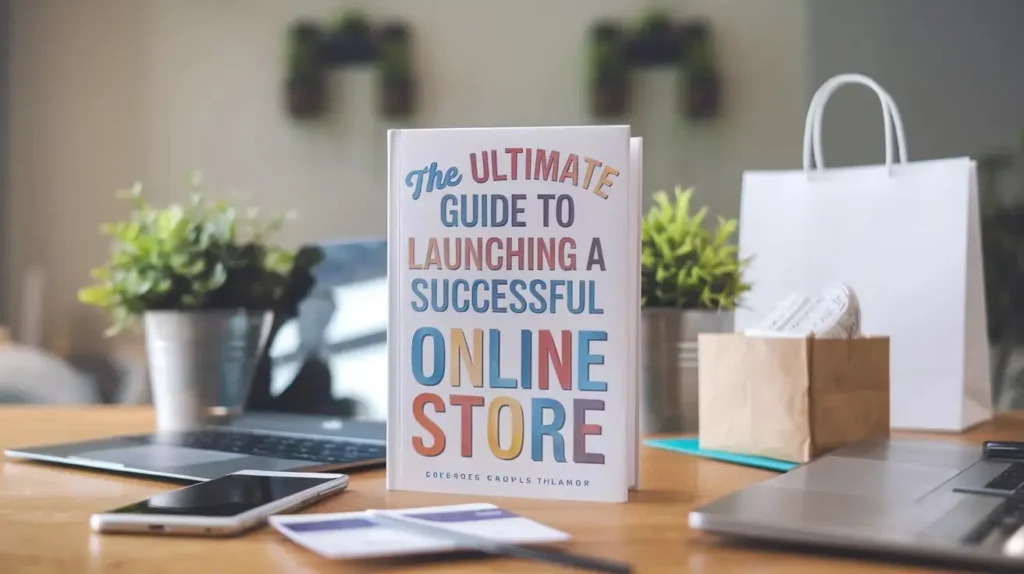
A picture is worth a thousand words, but when it comes to e-commerce product sheets, this saying has its limits.
A product sheet is not just a technical specification: it is a powerful marketing tool that can turn a casual visitor into a convinced buyer.
To inspire you, here are 15 examples of successful product sheets that illustrate how best practices can make each product page a real conversion weapon.
Let’s take a look at these inspiring presentations that have left a lasting impression.
1. Zara – Minimalist Design That Highlights the Product
- Clean Design for a Seamless Experience
The abundant white space and high-quality photographs showing multiple angles of the product allow for a clear and attractive presentation.
- Precise and Concise Information
Essential elements, such as the product name, a concise yet complete description, and material details, are presented in a way that facilitates quick decision-making.
- Smart Marketing Tactics
- Customer Reassurance and Recommendations
Zara provides clear information on returns and delivery, along with an interactive “Find Your Size” tool to reduce returns, making the shopping experience even smoother.
2. Leroy Merlin – Highlighting Product Features

- Emphasizing Benefits
Leroy Merlin’s product sheets highlight specific benefits, such as maneuverability and Ergoflex technology, targeting users who seek comfort and efficiency.
- Immersive Visuals
- Reassurance Through Customer Reviews
Customer reviews are strategically placed to provide a direct user perspective, reassuring potential buyers about the quality of the product.
3. Lush – Sensory Immersion and Ethical Engagement
- Immersive Visualization
Lush’s images show the product in action: bath bombs are displayed dissolving in water, creating sensory anticipation and strengthening the desire to buy.
- Highlighting Ethical Commitment
Labels like “Vegan” and “Packaging-Free” are prominently displayed, meeting the expectations of environmentally conscious and ethically-minded consumers.
- Engaging and Poetic Description
The product description evokes a sensory experience, using poetic language to stir emotion in the customer.
- Mobile Accessibility and Transparency
The mobile app is highlighted to encourage customer loyalty and transparency about product composition strengthens customer trust.
4. Nike – Building a Connection with the Consumer
- Personalization and Storytelling
Nike emphasizes the story behind the product, with descriptions that convey the brand’s values, and offers personalization options, allowing customers to create a unique product that reflects their individuality.
- Immersive Videos
Video is widely used to showcase products in real-life situations, illustrating different uses and innovations while allowing customers to see the product in action.
- Reassurance and Size Guides
Interactive size guides and clear return policies provide strong customer reassurance, making the shopping experience worry-free.
5. Made.com – Showcasing Products in Real Contexts
- Decorative Inspirations
Made.com products are presented in decorative settings, helping customers visualize how furniture would fit into their homes and providing styling ideas.
- Transparent Descriptions
Descriptions include not only dimensions but also information about craftsmanship and materials, offering complete transparency about product quality.
- Highlighting Customer Photos
Customer photos are often integrated, enhancing authenticity and allowing users to see products in real homes.
6. ASOS – Customer-Oriented Experience
- Easy Returns and Trust
ASOS makes returns easy, with clear instructions on procedures, reassuring potential customers about the brand’s commitment to their satisfaction.
- Dynamic Product Presentation
Videos of models wearing the clothes provide a dynamic and realistic view of the products, helping customers make informed decisions.
- Advanced Filters and Guides
Advanced filters allow customers to find products based on various criteria, and tailored size guides help reduce the risk of ordering the wrong size.
7. Apple – Focusing on Emotion and Elegance
- Elegant Minimalism
Apple presents its products with sleek visuals, allowing a focus on innovation and the quality of materials.
- Focus on Usage
Descriptions emphasize what the product enables you to do. Apple doesn’t just sell an object, but an experience: creating, working, and sharing.
- Comparisons and Technical Details
For more technical customers, comparison tables are included to help choose the model that best suits specific needs.
8. Glossier – Creating a Community Feel
- User-Generated Content
Glossier integrates customer reviews and photos directly on the product page, creating a sense of community and providing social proof that is highly influential in the buying decision.
- Conversational Product Descriptions
Descriptions are written in a casual, friendly tone, making customers feel like they are getting advice from a friend rather than being marketed to.
- Simplicity in Presentation
Glossier keeps the presentation simple, focusing on a few high-quality images and a clear call to action, making the buying process straightforward.
9. Amazon – Data-Driven Decisions
- Extensive Product Details
Amazon provides comprehensive product descriptions, including specifications, customer reviews, and answered questions, giving potential buyers all the information they need in one place.
- Customer Reviews and Ratings
The placement of reviews and ratings is crucial, giving customers confidence in their purchase by relying on peer experiences.
- Related Products and Recommendations
Amazon’s “Frequently Bought Together” and “Customers Who Viewed This Also Viewed” sections help increase average order value and provide customers with more options.
10. Sephora – Bringing Beauty Products to Life
- Interactive Tools
Sephora’s product sheets often include interactive tools, such as virtual try-ons for makeup, allowing customers to see how a product would look on them before buying.
- Ingredient Transparency
Detailed ingredient lists and explanations help customers understand the benefits and reassure those who are conscious of what they put on their skin.
- Beauty Community Integration
Sephora integrates community content, such as reviews and user-generated tutorials, creating a rich and engaging product experience.
11. IKEA – Practicality Meets Inspiration
- Room Visualizations
IKEA uses room visualizations to help customers understand how products can be arranged in their homes, making it easier for them to see the potential of a product.
- Detailed Assembly Instructions
Clear and easy-to-follow assembly instructions are available, addressing a common pain point for customers and increasing post-purchase satisfaction.
- Product Comparisons
IKEA provides product comparisons, helping customers make informed decisions between different models or sizes.
12. Warby Parker – Try Before You Buy
- Virtual Try-On Feature
Warby Parker offers a virtual try-on feature, allowing customers to see how different glass frames look on their faces before making a purchase.
- Storytelling and Brand Values
Descriptions often include information about the brand’s mission and values, making an emotional connection with the customer.
- Home Try-On Program
Warby Parker’s home try-on program is highlighted, giving customers the confidence to try before they commit, which significantly reduces hesitation.
13. Patagonia – Emphasizing Sustainability
- Commitment to Sustainability
Patagonia highlights its commitment to sustainability, with detailed information on the materials used and the brand’s environmental initiatives.
- Product Usage Stories
The product sheets include stories of how products have been used in real-world adventures, building a connection with the brand’s target audience.
- Warranties and Repairs
Patagonia’s “Ironclad Guarantee” and repair services are clearly explained, reassuring customers about the product’s durability.
14. Casper – Emphasizing Comfort
- Experience-Oriented Descriptions
Casper’s product descriptions focus heavily on the sleep experience, emphasizing comfort and how their products solve common sleep issues.
- Customer Testimonials
Customer testimonials are prominently displayed, providing social proof and helping potential buyers feel confident in their purchase.
- Trial Period and Returns
The product sheet highlights the 100-night trial period, reducing the risk for customers and encouraging them to try the product.
15. Bonobos – Fit and Flexibility
- Fit Guides
Bonobos provides detailed fit guides and videos showing how different sizes fit, which is particularly helpful for customers shopping for clothing online.
- Customer Service Accessibility
- User-Friendly Return Policy
The Power of Reassuring Product Sheets: Driving Conversions through Emotional Resonance
Bonobos emphasizes their hassle-free return policy, providing reassurance and encouraging customers to make a purchase.
These examples demonstrate that a good product sheet does more than just present a product. It tells a story, evokes emotions, and creates a connection with the customer.
The importance of high-quality visuals, transparency, customer reviews, and accessibility cannot be underestimated.
Whether it’s to strengthen customer reassurance, optimize the user journey, or create an immersive experience, these product sheets are sources of inspiration to maximize conversions. Use them to turn casual visitors into loyal customers.
Remember: A product sheet is a reflection of your brand: it must be engaging, inspiring, and above all, reassuring.
Conclusion: E-commerce Product Sheet
In conclusion, an effective product sheet is more than just a presentation of a product—it is a strategic tool that bridges the gap between the brand and the consumer.
By focusing on high-quality visuals, transparency, customer engagement, and storytelling, these examples show how you can create an inspiring and persuasive product sheet that not only informs but also connects emotionally with your audience.
Whether you’re building brand loyalty, enhancing user experience, or maximizing conversions, a well-crafted product sheet is key to achieving your e-commerce goals.
FAQ
What makes a product sheet effective?
- A good product sheet is concise, visually appealing, and informative. It should include high-quality images, detailed descriptions, customer reviews, and clear calls to action.
How important are visuals in a product sheet?
- Visuals are crucial. High-quality images, videos, and immersive content help customers better understand the product and make informed purchasing decisions.
Should I include customer reviews on my product sheet?
- Yes, customer reviews provide social proof, build trust, and help reassure potential buyers about the quality and reliability of the product.
How can I improve customer engagement on my product pages?
- Use interactive features like videos, virtual try-ons, and personalized recommendations. Highlight key benefits and ensure an easy-to-navigate layout.
What role does transparency play in a product sheet?
- Transparency about product features, ingredients, return policies, and warranties helps build trust and encourages customers to make a purchase.
How do I make my product sheet stand out?
- Focus on storytelling, personalization, and a strong brand voice. Use high-quality visuals and provide clear, engaging information that connects with your target audience.



